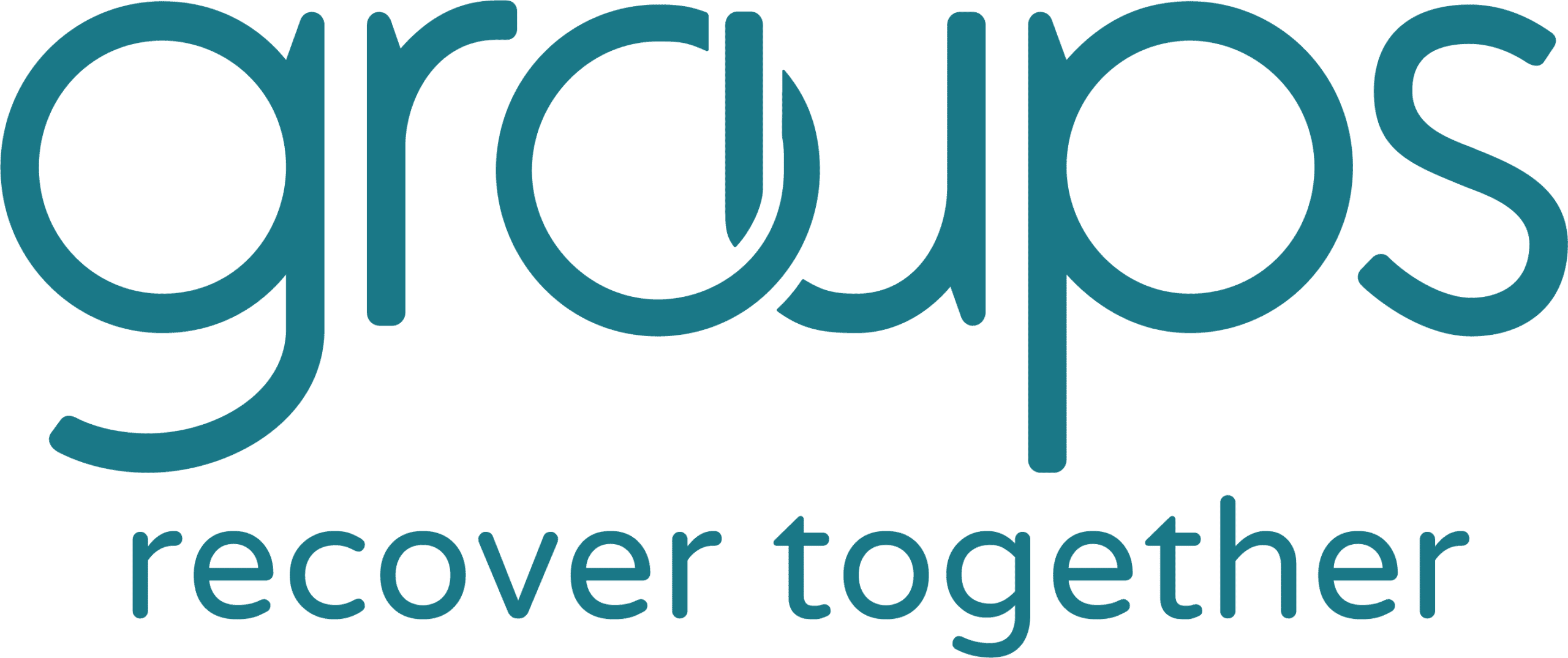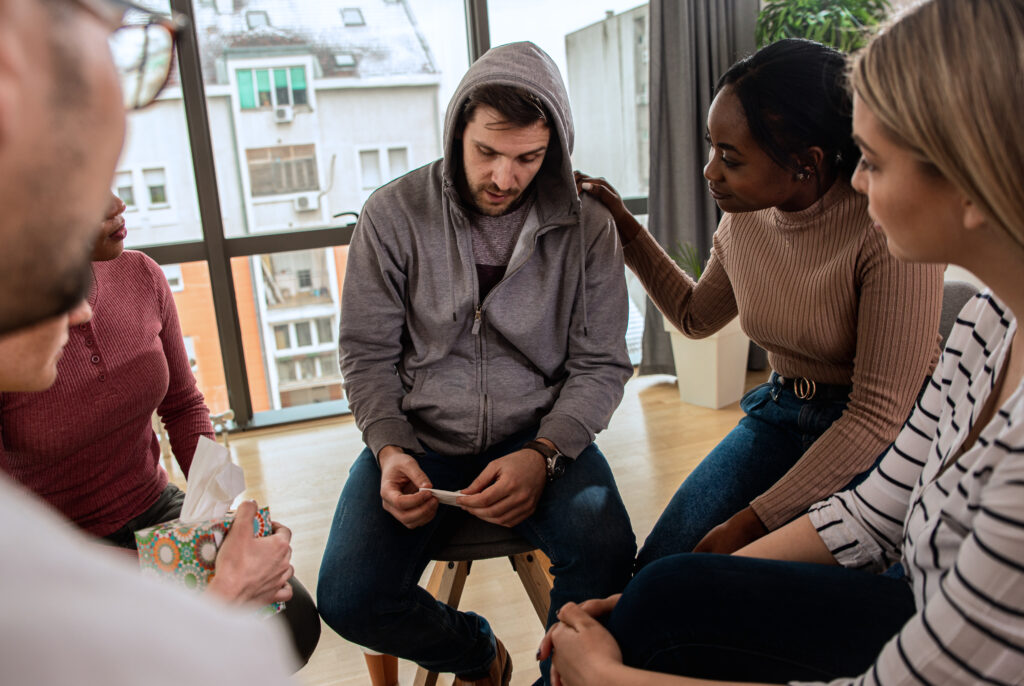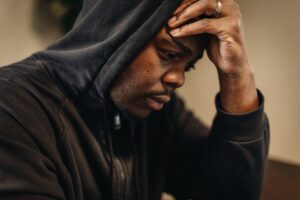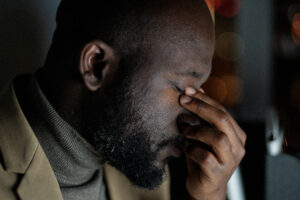Cognitive behavioral therapy (CBT) is a flexible but effective approach to treating mental health conditions and substance use disorders. For people who have opioid use disorder (OUD), it can help you understand your relationship with opioids and gain an awareness of how your thoughts and feelings affect your behavior. Once you’ve done this, you can start to make choices that align with your values and the life you want to live.
CBT informs our comprehensive approach to OUD treatment at Groups. We apply CBT concepts in a group therapy setting, which adds a social aspect to recovery. Sharing your experiences with your peers and hearing about what they’re going through helps reduce the stigma around opioid use. It also helps you gain valuable insight into how you might apply what you’re working on to life outside of treatment. Along with group therapy, we provide access to medication for opioid use disorder (MOUD) and assistance with necessities like food and housing. If you’re ready to get started, please contact us.
In this blog post, we’ll share seven ways cognitive behavioral therapy can help you on the road to recovery from OUD.
7 ways cognitive behavioral therapy can help you on the road to recovery
Cognitive behavioral therapy (CBT) for substance use allows each individual to get a personalized treatment experience. Providers help people understand the ways opioid use has impacted their life. That means looking at both the positive and negative. For some people, it may help them deal with physical or emotional pain. When you’ve been using for a while, your relationships with other opioid users may be your only social connections. In reflecting on cause-and-effect relationships, you can put some distance between yourself and your experiences. This allows you to see the bigger picture and start to build a life that doesn’t depend on opioid use.
The following are seven ways CBT can help you in your recovery from opioid use disorder:
- Education about opioid use disorder — Education about addiction and opioid use in particular is an important part of CBT. Your counselor will help you understand how addiction works on a physical and emotional basis. This helps normalize OUD as a chronic health condition. If you have any internalized judgment or guilt about your opioid use, understanding the science behind it may help you adopt a more neutral view. When you come to terms with what OUD is and how it works, you can find effective ways to manage it. You’ll also learn about treatment approaches such as medication for opioid use disorder (MOUD) and positive reinforcement and why they’re helpful.
- Identifying and changing negative thought and behavior patterns — Destructive thought patterns can play a big role in substance use disorders. You might think, “I’m having a hard time, and getting high is the only way I can get rid of these feelings.” Or “I’ve already messed up my life, why should I try to change now?” Rationalizing and defeatist thinking are both negative patterns. They can keep you stuck in the cycle of opioid use. Your counselor can help you reframe these negative thoughts in more helpful ways. For instance, you might tell yourself, “I’m having a hard time, but this is only a temporary feeling. It won’t last forever.” Or “The choices I’ve made don’t make me a bad person. I can make different choices starting now.”
- Developing coping mechanisms for stress and triggers — When you’re not using opioids to numb negative feelings, you need new strategies to deal with them. You also need to know what your triggers are and develop skills for managing cravings. Learning healthy coping skills and techniques for stress management are key aspects of CBT. Your counselor can give you some ideas to start with. They’ll also help you experiment with different coping strategies. It’s important to figure out what works for you. You might use exercise and yoga to manage your stress. Or you might carry a picture of a loved one to use as an anchor. Looking at it may help remind you of your personal values and your commitment to your relationship with that person.
- Improving emotional regulation — To respond to your emotions in healthy ways, you first need to identify them. Anger, pain, and sadness can feel overwhelming in the moment. However, these are all temporary states. Thinking of your emotions as weather conditions can help you create some distance from them and gain some control over your response. You can’t control your emotions, but you can find effective ways to process them. Taking responsibility for your actions and building your emotional intelligence can help you keep yourself from using when you’re upset.
- Building problem-solving skills — There will be challenges that come up on your recovery journey. Losing a loved one or a job or developing a health condition can interfere with the plans you’ve made for your life. As you try to stop using opioids and change your life, you’ll run into internal and external barriers. Maybe you don’t have a social life outside of your opioid use, or maybe you can’t find affordable housing. Getting through these tough times requires critical thinking, flexibility, and decision-making skills. CBT can help with all of these things. A counselor can help you take a step back, see the bigger picture, and uncover new solutions.
- Enhancing motivation and self-efficacy — If past attempts to make positive change have led to disappointment, it can be hard to convince yourself to keep trying. CBT can help you find powerful sources of motivation. It can also help you take small steps forward and gradually win back your faith in yourself and others. It may take some soul-searching and self-exploration to discover what helps you keep going when you want to quit. Your counselor can help guide you through it and help you come up with more positive ways to speak to yourself.
- Setting meaningful, achievable goals — When your life is defined by opioid use, it can be hard to make plans for the future. Your initial goals may be things like getting a phone or finding reliable transportation. At Groups, life-goal assistance is a critical part of treatment. CBT can help you identify goals for the life you want to live.
Experience CBT in a positive healing community at Groups
CBT is ultimately a guided journey of self-discovery and personal growth. With the help of a licensed counselor, you can see your OUD for what it is and take back control of your life. At Groups, not every counselor is certified in CBT. But they do often use CBT techniques while facilitating group therapy sessions.
It’s not about being hard on yourself. It’s about cultivating self-compassion and authenticity. During this process, people sometimes discover needs they have that aren’t being met. It’s possible that pain from past experiences has never been addressed. The good news is that you don’t have to do this alone. You’ll have the support of a counselor and a group of peers who understand what you’re going through.
Are you ready to try a new approach to recovery? Give us a call today.
You may need a smartphone or a reliable internet connection to access our program. Learn about phone and internet resources available in your area.
We provide treatment across the country — and we’re always expanding. See if we offer care in your state, either online or at one of our 130+ local offices. If Groups doesn’t offer treatment in your area, you can locate other treatment options here.




